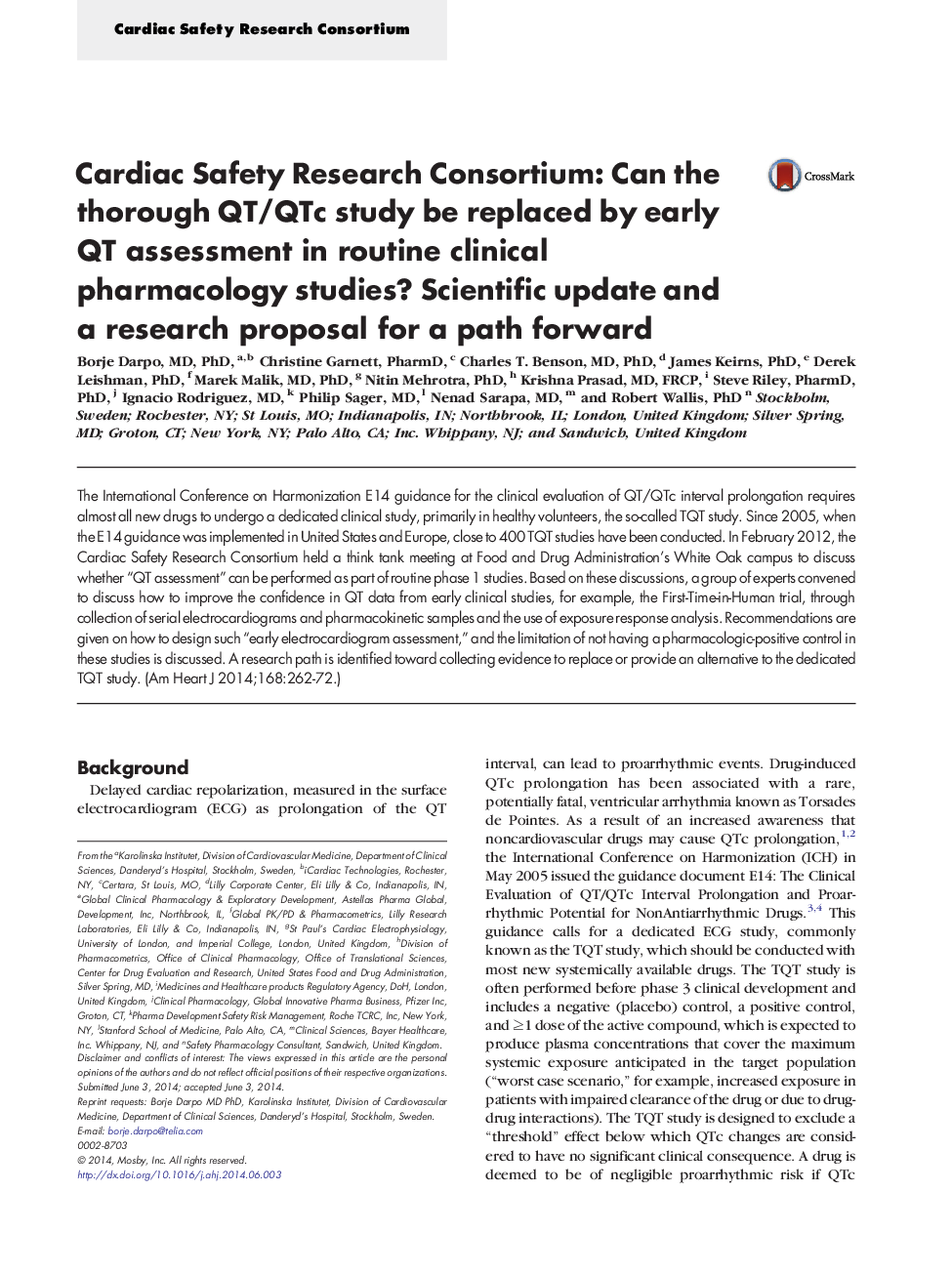| Article ID | Journal | Published Year | Pages | File Type |
|---|---|---|---|---|
| 2849368 | American Heart Journal | 2014 | 11 Pages |
The International Conference on Harmonization E14 guidance for the clinical evaluation of QT/QTc interval prolongation requires almost all new drugs to undergo a dedicated clinical study, primarily in healthy volunteers, the so-called TQT study. Since 2005, when the E14 guidance was implemented in United States and Europe, close to 400 TQT studies have been conducted. In February 2012, the Cardiac Safety Research Consortium held a think tank meeting at Food and Drug Administration’s White Oak campus to discuss whether “QT assessment” can be performed as part of routine phase 1 studies. Based on these discussions, a group of experts convened to discuss how to improve the confidence in QT data from early clinical studies, for example, the First-Time-in-Human trial, through collection of serial electrocardiograms and pharmacokinetic samples and the use of exposure response analysis. Recommendations are given on how to design such “early electrocardiogram assessment,” and the limitation of not having a pharmacologic-positive control in these studies is discussed. A research path is identified toward collecting evidence to replace or provide an alternative to the dedicated TQT study.
